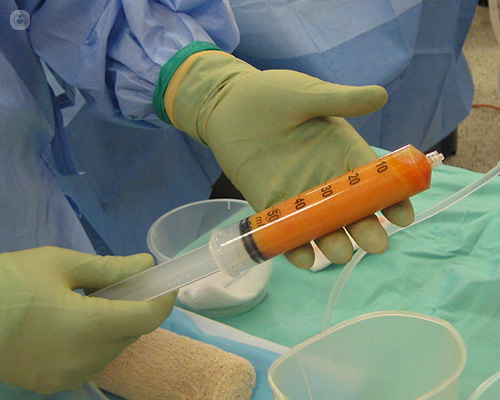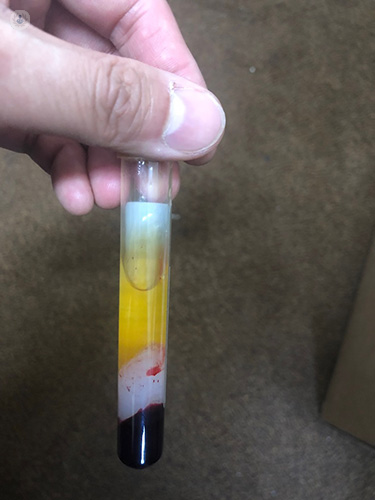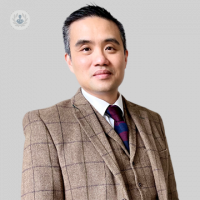Intra-articular injections for managing knee osteoarthritis
Written by:Knee pain is a common ailment and source of discomfort for the UK’s population, related to the obesity epidemic, our ageing population and our increasingly sedentary lifestyles. Knee pain is often attributed to osteoarthritis, with eventual treatment being a total knee replacement (TKR). However, due to low levels of patient satisfaction with this procedure, as well as poor outcomes, leading orthopaedic surgeons like Professor Paul Lee are turning to intra-articular injections to provide their patients with temporary pain relief.
Whilst a knee replacement may be necessary eventually, injections can provide patients with better pain relief than other conservative measures, such as analgesics and lifestyle changes. Here Professor Lee reviews the different types of injections available.

Corticosteroids
These injections have been around the longest and are often used to reduce pain and inflammation in the knee joints. The benefit of injecting corticosteroids rather than taking them orally or intravenously is that the side-effects of weight gain and osteoporosis are better avoided. There are several different types of corticosteroids available to use, and currently there is no conclusive evidence about which can deliver the best results in terms of pain relief. Despite their pain-relieving abilities, some patients experience side-effects of knee cartilage damage, which ultimately results in worsened knee pain and usability. It is thought that such injections are best used on a short-term basis to avoid such complications.
Hyaluronic acid (HA)
HA is naturally occurring in joints and is involved in shock absorption, energy dissipation and lubrication of said joints. HA is also said to have an anti-inflammatory effect, which is beneficial to knees affected by osteoarthritis. Interestingly, such knees have been shown to be deficient in HA. Hence, regular injections of HA are thought to increase production of HA and help to improve knee pain and function. However, corticosteroids are thought to have better short-term outcomes, but HA injections work better in the long-term.
Platelet-rich plasma (PRP)
PRP injections have become increasingly popular in recent years. PRP is a blood product that is derived from the patient’s own blood and contains high levels of platelets. Platelets contain several growth factors which have benefits related to tissue repair. PRP injections are thought to reduce pain, improve knee function and consequently, the overall quality of life. However, the long-term efficacy is not proven for PRP injections.

Novel substances
Whilst corticosteroids, HA and PRP injections are the most used and well-researched in treating knee arthritis, there is a lot more room for research on future intra-articular injections for this condition. With the more recent insights gained on the inflammatory element of osteoarthritis, there is an opportunity to use this finding to find better, more effective treatments that alleviate knee pain and improve knee function.
The above treatments do provide pain relief for patients with knee osteoarthritis, however, this relief is short-term and no such injection has been shown to modify disease progression. Ultimately, even with such treatments, a total knee replacement will likely be needed for such patients when function and quality of life become severely affected.
Read more: osteoarthritis in young people
If you are suffering from knee osteoarthritis, make an appointment with an expert to discuss treatment options.


